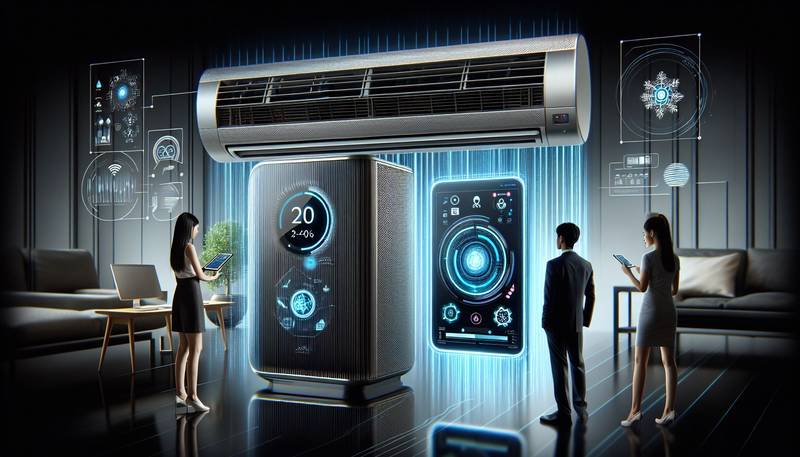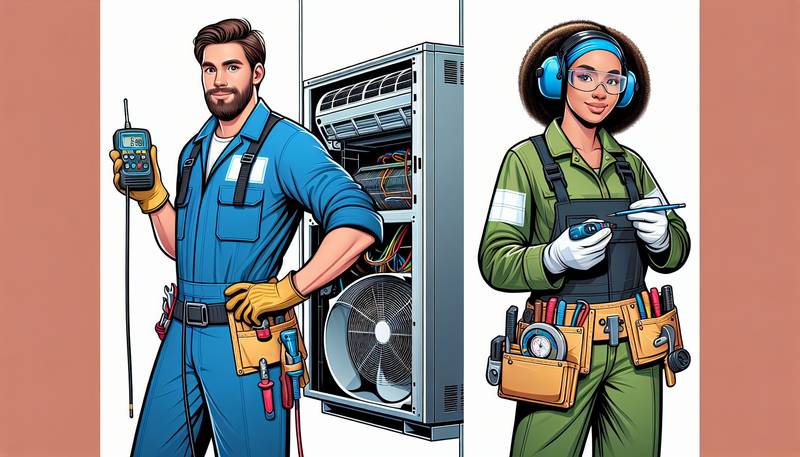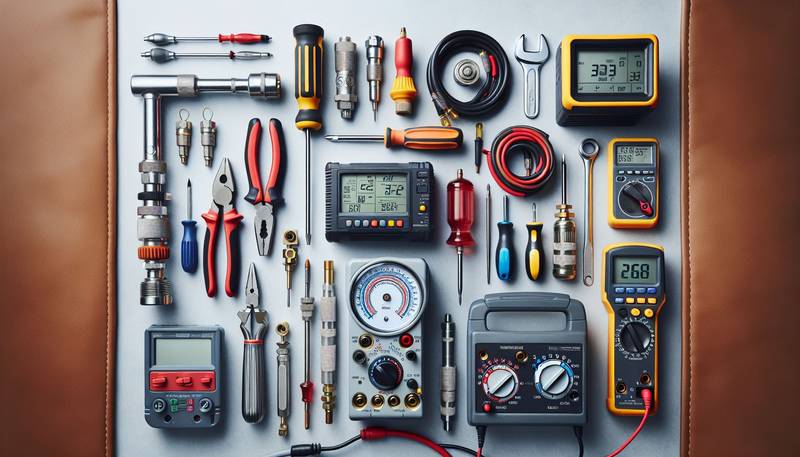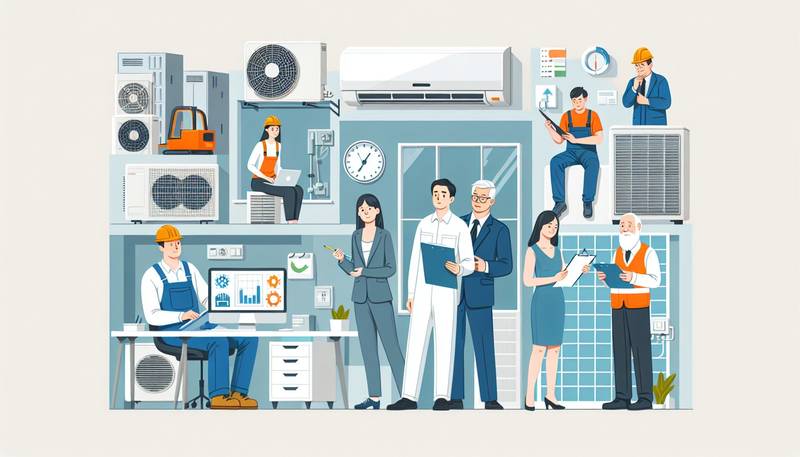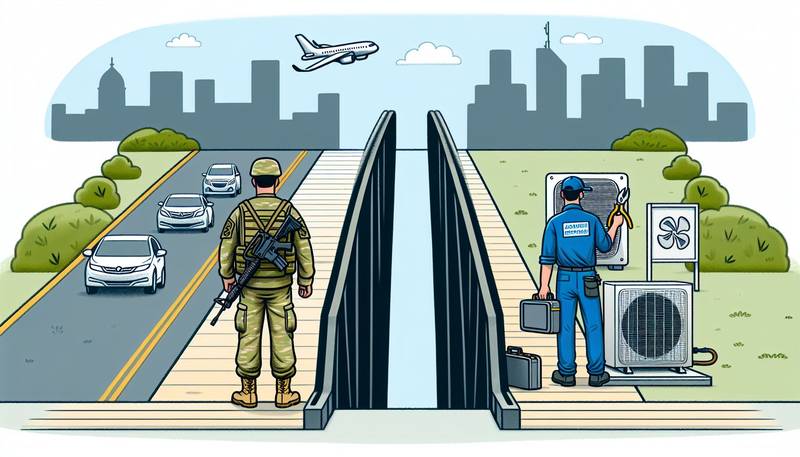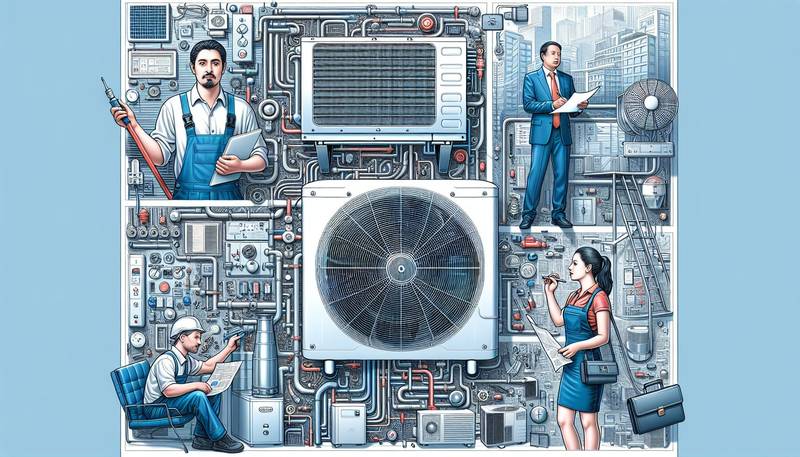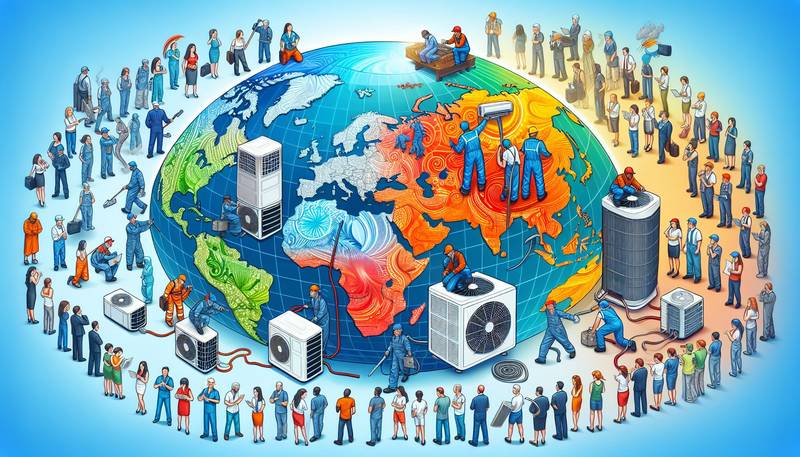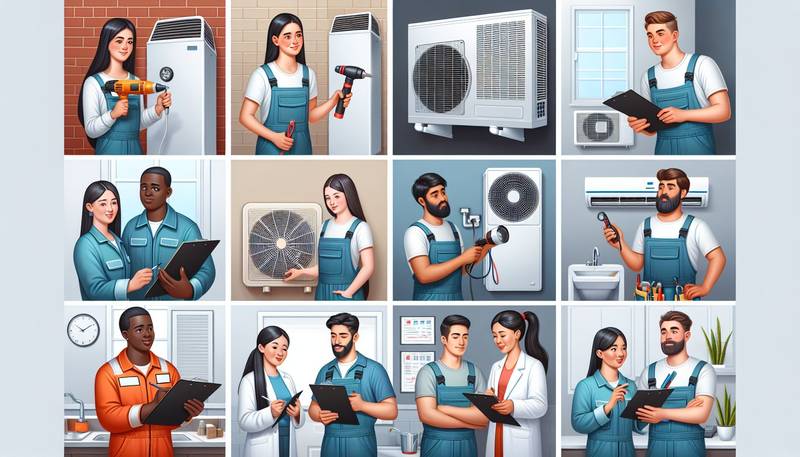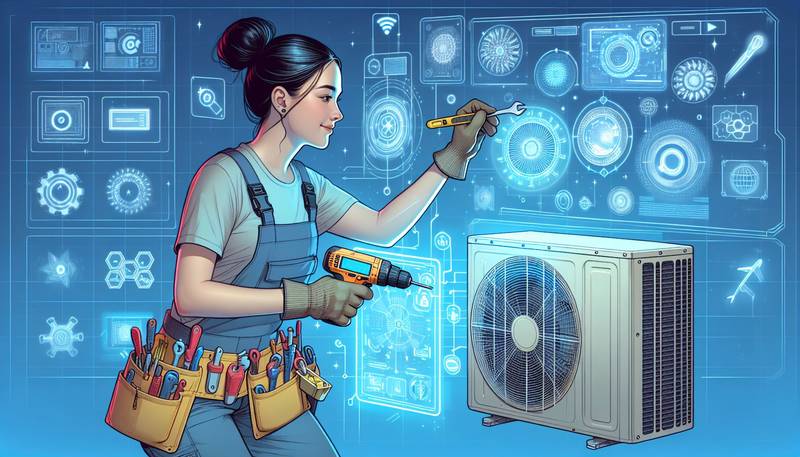Remote Control: The Rise of Smart Technology in Air Conditioning Careers
This rise in smart technology is changing the landscape of air conditioning careers, creating new opportunities for professionals in the industry.
The Benefits of Smart Technology in HVAC Systems
One of the key benefits of smart technology in HVAC systems is increased energy efficiency. By allowing users to control their air conditioning systems remotely, they can adjust settings based on their schedule and preferences. This can lead to significant cost savings on energy bills, as the system can be programmed to run only when needed. Additionally, smart technology can provide real-time data on energy usage, allowing users to track their consumption and make adjustments as necessary.
Another advantage of smart technology in HVAC systems is improved comfort and convenience. Users can adjust the temperature and humidity levels in their space from anywhere, ensuring that they always come home to a comfortable environment. Smart thermostats can also learn user preferences over time, automatically adjusting settings to maximize comfort and energy efficiency.
Opportunities for Professionals in Air Conditioning Careers
As smart technology becomes more prevalent in HVAC systems, there are new opportunities emerging for professionals in air conditioning careers. Technicians who are familiar with smart HVAC systems and how to install and maintain them will be in high demand. This may require additional training and certification, but can lead to a more specialized and lucrative career path.
Additionally, the rise of smart technology in HVAC systems is creating new roles in the industry, such as HVAC automation specialists and smart home integrators. These professionals work to design and implement smart HVAC systems, as well as integrate them with other smart home technologies. As the demand for smart technology continues to grow, so too will the need for professionals who can install and maintain these systems.
Challenges and Considerations for Professionals in Air Conditioning Careers
While the rise of smart technology in HVAC systems presents new opportunities for professionals in the industry, it also comes with its own set of challenges. One of the main concerns is cybersecurity, as connected devices are susceptible to hacking and other cyber threats. Professionals working with smart HVAC systems must be well-versed in cybersecurity best practices to ensure the safety and privacy of their clients.
Another consideration for professionals in air conditioning careers is the need to stay up-to-date on the latest advancements in smart technology. As the industry continues to evolve, technicians and other professionals must continuously update their skills and knowledge to remain competitive. This may require attending training programs and obtaining certifications to stay ahead of the curve.
Conclusion
The rise of smart technology in air conditioning systems is changing the way we interact with HVAC systems, offering benefits such as increased energy efficiency, improved comfort, and convenience. For professionals in air conditioning careers, this shift presents new opportunities for specialization and growth. By staying informed and adaptable, HVAC technicians and other professionals can capitalize on the demand for smart technology in the industry and carve out a successful career in this evolving field.
